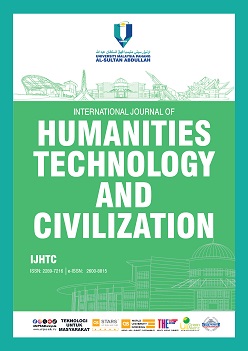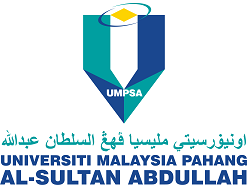DILEMA DAN HARAPAN: FAKTOR-FAKTOR PENERIMAAN GURU TADIKA TERHADAP KANAK-KANAK BERKEPERLUAN KHAS
Dilemma and Hope: Factors Influencing Preschool Teachers’ Acceptance of Children with Special Needs
DOI:
https://doi.org/10.15282/ijhtc.v10i1.12255Keywords:
Teachers' acceptance, Inclusive education, Children with special needs, Intervention, Challenges in inclusive education, Penerimaan guru, Pendidikan inklusif, Kanak-kanak berkeperluan khas, Intervensi, Cabaran pendidikan inklusifAbstract
The acceptance of preschool teachers towards children with special needs plays a crucial role in the successful implementation of inclusive education. However, various challenges such as lack of knowledge, social stigma, and limited resources and support have affected teachers' acceptance and teaching effectiveness. This study aims to explore the factors influencing teachers' acceptance. Using a literature review approach, this study analyzes various factors contributing to teachers' acceptance or the challenges they face in inclusive education. The findings indicate that interventions involving government policies, continuous training, transdisciplinary collaboration, and strengthening parental roles in inclusive education can enhance teachers' acceptance of children with special needs. Therefore, integrated support from policymakers, educational institutions, and the community is essential to empower teachers in creating an inclusive and responsive learning environment for students with special needs.
Penerimaan guru tadika terhadap kanak-kanak berkeperluan khas memainkan peranan penting dalam kejayaan pelaksanaan pendidikan inklusif. Namun, pelbagai cabaran seperti kekurangan pengetahuan, stigma sosial, serta keterbatasan sumber dan sokongan telah menjejaskan penerimaan dan keberkesanan pengajaran guru. Kajian ini bertujuan untuk meneroka faktor-faktor yang mempengaruhi penerimaan guru. Dengan menggunakan kaedah tinjauan literatur, kajian ini menganalisis pelbagai faktor yang menyumbang kepada penerimaan atau cabaran yang dihadapi oleh guru dalam pendidikan inklusif. Hasil kajian menunjukkan bahawa intervensi yang melibatkan dasar kerajaan, latihan berterusan, kolaborasi transdisiplin, dan pengukuhan peranan ibu bapa dalam pendidikan inklusif dapat meningkatkan penerimaan guru terhadap kanak-kanak berkeperluan khas. Oleh itu, sokongan bersepadu daripada pembuat dasar, institusi pendidikan, dan masyarakat diperlukan bagi memperkasakan guru dalam menyediakan persekitaran pembelajaran yang inklusif dan responsif terhadap keperluan murid berkeperluan khas.
References
Abu Bakar, N. H., & Nordin, M. N. (2024). Inclusive education programs in Malaysia: Teachers' challenges in implementation. Special Education [SE], 2(1), e0017-e0017.
Acar, S., Chen, C. I., & Xie, H. (2021). Parental involvement in developmental disabilities across three cultures: A systematic review. Research in Developmental Disabilities, 110, 103861.
Afolabi, O., Mukhopadhyay, S., & Nenty, H. J. (2013). Implementation of inclusive education: Do parents really matter? Specijalna edukacija i rehabilitacija, 12(3) 373–401.
Aliyu, A. Y., Ihisota, J. C., & Okonkwo, J. A. (2025). Perception of teacher educators' on inclusive early childhood education curriculum in South East Nigeria. Journal of Early Childhood Development and Education, 2(1), 25-33.
Almalki, S., Alqabbani, A., & Alnahdi, G. (2021). Challenges to parental involvement in transition planning for children with intellectual disabilities: The perspective of special education teachers in Saudi Arabia. Research in Developmental Disabilities, 111, 103872.
Arifin, R. (2022). Kurikulum pendidik Rabbani untuk peningkatan kompetensi kepribadian guru. Tawazun: Jurnal Pendidikan Islam, 15(3), 495-504.
Báder, M., Lukács, S., & Perlusz, A. (2022). How can special teachers aid successful kindergarten inclusion? Good practices in a district of Budapest. Gyermeknevelés Tudományos Folyóirat, 10(2–3), 10-22.
Bandu, S. H. B., Jelas, Z. M., Yasin, M. H. M., & Tahar, M. M. (2012). Cabaran Penyediaan Rancangan Pendidikan Individu (RPI) di Sekolah Pendidikan Khas Integrasi. In Seminar Internasional Pelajar Pasca Siswazah Pendidikan Khas, January (pp. 1-14).
Crispel, O., & Kasperski, R. (2021). The impact of teacher training in special education on the implementation of inclusion in mainstream classrooms. International Journal of Inclusive Education, 25(9), 1079-1090.
Dudu, A., Mavezera, T. F., & Majoko, T. (2024). Inclusive Education: A Global Pursuit. In Handbook of Research on Inclusive and Accessible Education (pp. 376-390). IGI Global Scientific Publishing.
Fathima, S., & Pandey, P. (2024). Visible impact of negligence in early childhood care and education on Indian pre-schools. International Journal of Innovative Science and Research Technology, 9(8), 1719–1723
Huraerah, A. J. A. (2017). Etika Guru dalam Perspektif al-Timidzi (Studi Atas Kitab Sunan al-Tirmidzi Karya Abu Isa Muhammad bin Isa al-Tirmidzi). Journal of Islamic Education Policy, 1(2).
Hussain, A., & Begum, F. (2024). Comprehensive Education: Children with Special Needs.
İnce, M., & Hüseyin, Y. H. (2023). Inclusion in Preschool Education: Approaches in different countries. Zeitschrift Für Die Welt Der Türken | Journal of World of Turks, 15(3), 223–235.
Irfan, M. A. (2022). Fostering moral education in children: A study based on the moral values contained in Surah An-Nisa verse 36. Tadibia Islamika, 2(1), 34-43.
Khosa, S. N. K., Shakir, M., & Aslam, E. (2023). Sustainable teaching: Analysis of teachers’ competencies in inclusive education. Sir Syed Journal of Education & Social Research, 6(1), 159-168.
Kurniastuti, I., Evanjeli, L. A., & Sari, D. P. (2023). Teachers’ challenges and strategies in teaching literacy skills for children with special needs. Jurnal Obsesi: Jurnal Pendidikan Anak Usia Dini, 7(1), 937-948.
Kwok, K., & Kwok Lai Yuk Ching, S. (2022). Navigating stigma and discrimination: Experiences of migrant children with special needs and their families in accessing education and healthcare in Hong Kong. International Journal of Environmental Research and Public Health, 19(10), 5929.
Low, H. M., Wong, T. P., Lee, L. W., Makesavanh, S., Vongsouangtham, B., Phannalath, V., ... & Lee, A. S. S. (2021). A grassroots investigation of ASD knowledge and stigma among teachers in Luang Prabang, Lao PDR. Research in Autism Spectrum Disorders, 80, 101694.
Metzger, A. N., & Hamilton, L. T. (2021). The stigma of ADHD: Teacher ratings of labeled students. Sociological Perspectives, 64(2), 258-279.
Mi-Young, Nam., Kang,Young-Sim., Hye, Sun, J. (2010). A Study on the Types of Kindergarten Teachers’ Perception of the Inclusive Education for Children with Disabilities. The Journal of Inclusive Education, 5(2), 83–102.
Mustika, D., Irsanti, A. Y., Setiyawati, E., Yunita, F., Fitri, N., & Zulkarnaini, P. (2023). Pendidikan Inklusi: Mengubah masa depan bagi semua anak. Student Scientific Creativity Journal, 1(4), 41-50.
Nor, N. I. M. (2021). Pendidikan Islam bagi kanak-kanak berkeperluan khas: Guru sebagai Murabbi: Islamic Education for children with special needs: Teacher as Murabbi. Journal of Quran Sunnah Education & Special Needs, 5(1), 64-76.
Nordin, M. N., Huey, L. W., Kaur, H., & Abbas, M. S. (2024). A review of studies related to parental involvement in early intervention for children with special educational needs with visual impairment. International Journal of Academic Research in Business and Social Sciences, 110-113.
Peregil-Lubaton, L. (2024). Awareness and training needs of teachers in inclusive education. International Journal of Social Science and Human Research, 7(6), 4281–4287.
Qin, L., Wang, H., Ning, W., Cui, M., & Wang, Q. (2024). New advances in the diagnosis and treatment of autism spectrum disorders. European Journal of Medical Research, 29(1), 322.
Salleh, R., & Woollard, J. (2019). Inclusive education: Equality and equity (Teachers’ views about inclusive education in Malaysia’s primary schools). Jurnal Pendidikan Bitara UPSI, 12, 72-83.
Stites, M. L., Walter, H. L., & Krikorian, J. G. (2021). These aren’t the kids I signed up for: The lived experience of general education, early childhood preservice teachers in classrooms for children with special needs. Journal of Early Childhood Teacher Education, 42(1), 1-19.
Tan, W. Q., & Khairuddin, K. F. (2023). Penerimaan guru tadika terhadap kanak-kanak berkeperluan khas di Kota Bharu, Kelantan. Jurnal Dunia Pendidikan, 5(1), 710-724.
Vistar, M. T. A., Pinili, L., & Capuno, R. (2024). Investigating the child development of learners with special educational needs in inclusive education. International Journal for Research in Applied Science and Engineering Technology, 12(5), 1369–1411.
Wong, M. T., & Rashid, S. M. M. (2022). Challenges of special education teachers in implementation individual education plan (IEP) for students with learning disabilities (LD). International Journal of Academic Research in Business and Social Sciences, 12(11), 113–128.
Yusof, F. H. M., & Abdullah, M. A. (2020, March). Issues and challenges of teaching and learning special education program students in the inclusive education subject: case studies. In International Conference on Special Education in South East Asia Region 10th Series 2020 (pp. 387-395). Redwhite Press.
Yusof, N. I., & Ismail, H. (2021). Knowledge and readiness of preschool teachers in accepting special needs children. Turkish Journal of Computer and Mathematics Education (TURCOMAT), 12(3), 143-151.
Downloads
Published
Issue
Section
License
Copyright (c) 2025 The Author(s)

This work is licensed under a Creative Commons Attribution-NonCommercial 4.0 International License.




